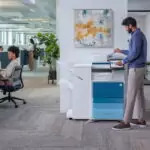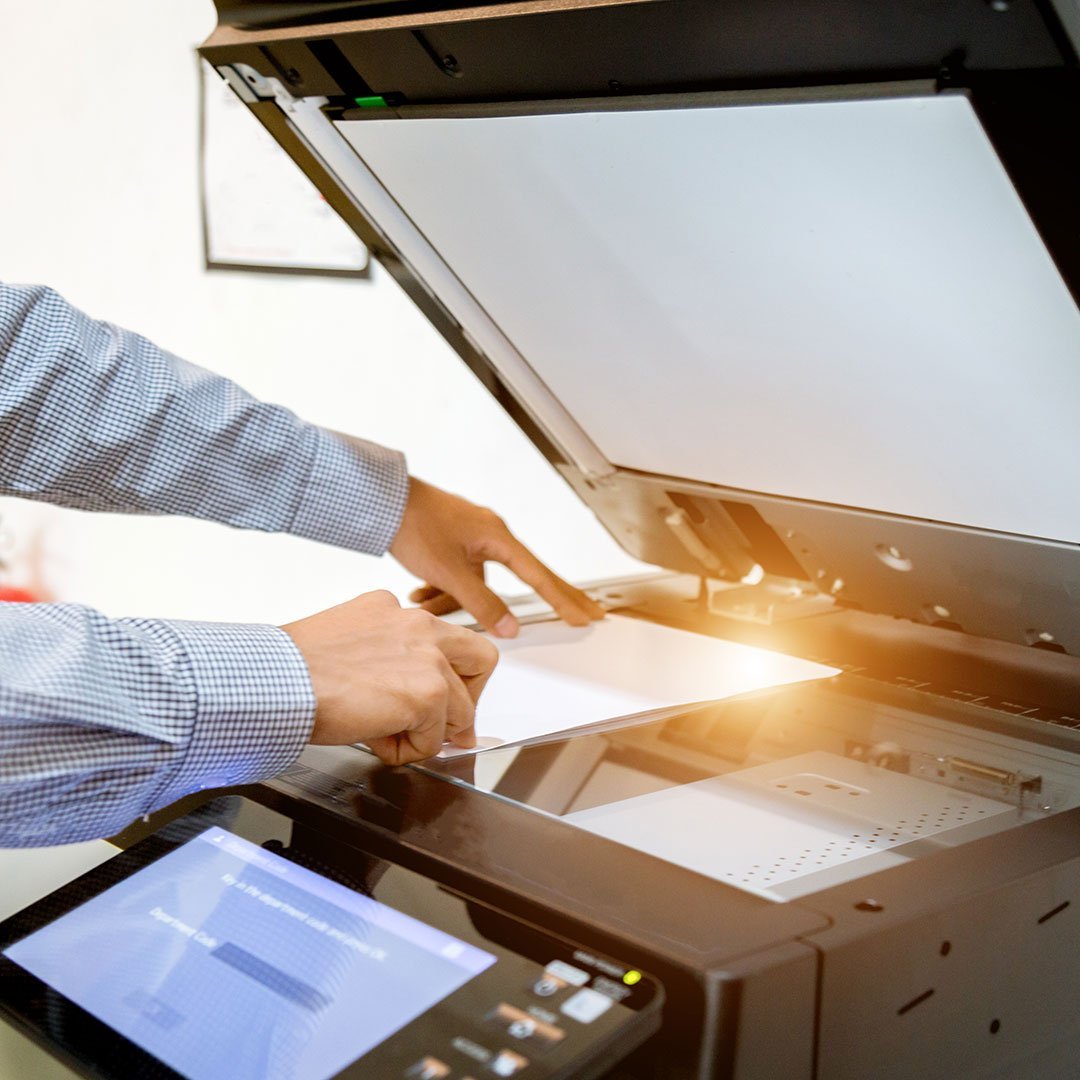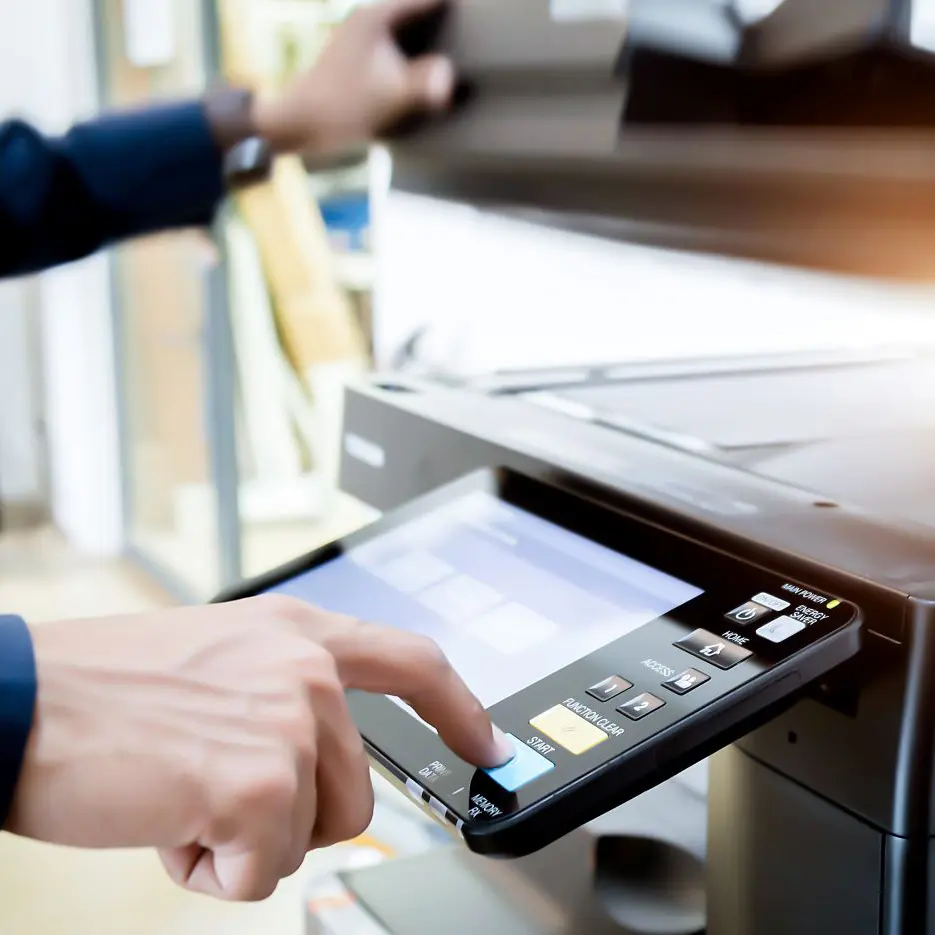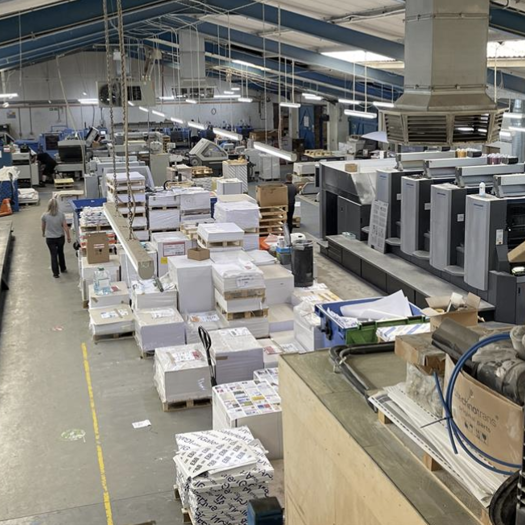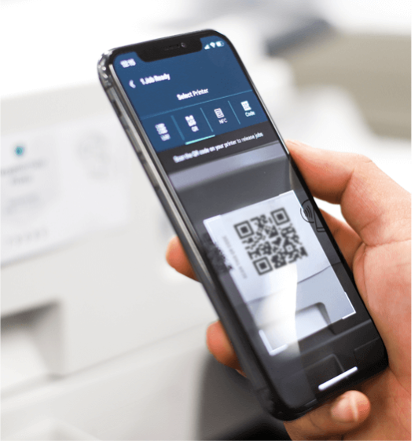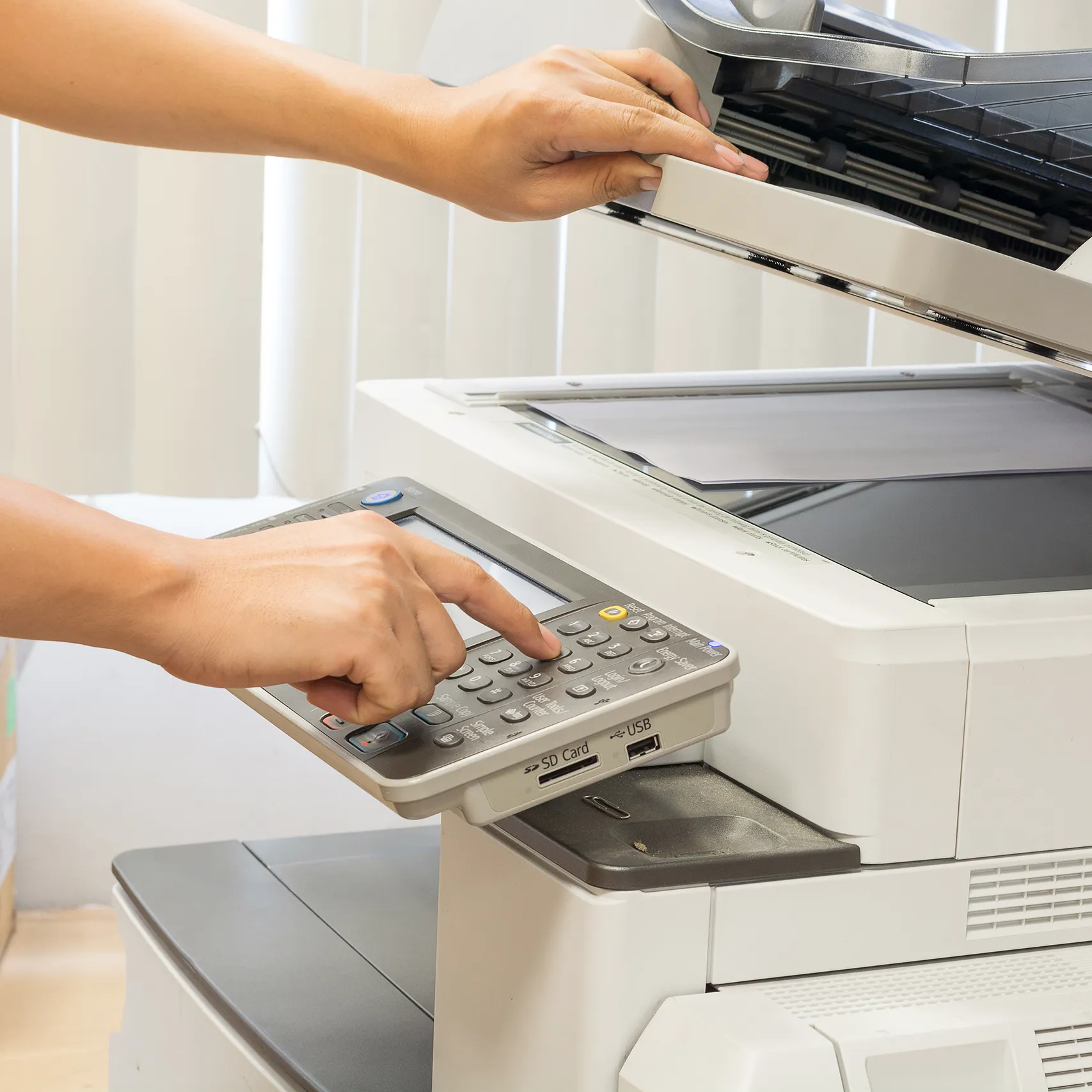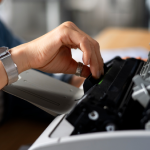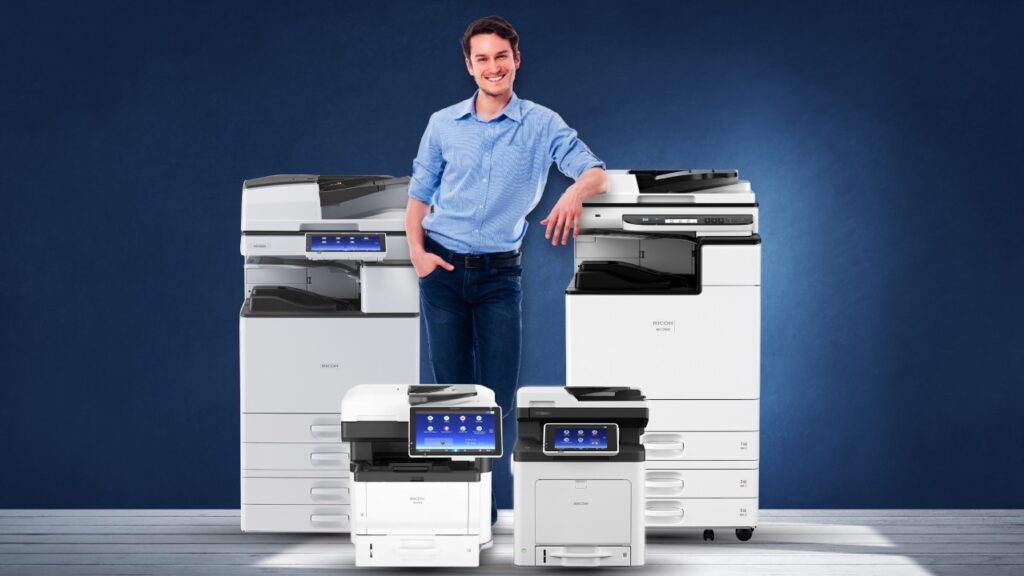
Leasing Photocopiers & Printers A Smart Business Choice
In today’s fast-paced business environment, efficiency is key, and having the right office equipment plays a pivotal role in achieving it. Photocopiers and printers are essential tools for any company, but the decision of whether to buy or lease them can be a critical one.
Leasing photocopiers and printers is a compelling option for businesses looking to optimise their operations while conserving capital and benefiting from potential tax advantages.
Why Choose Leasing?
Preserve Capital
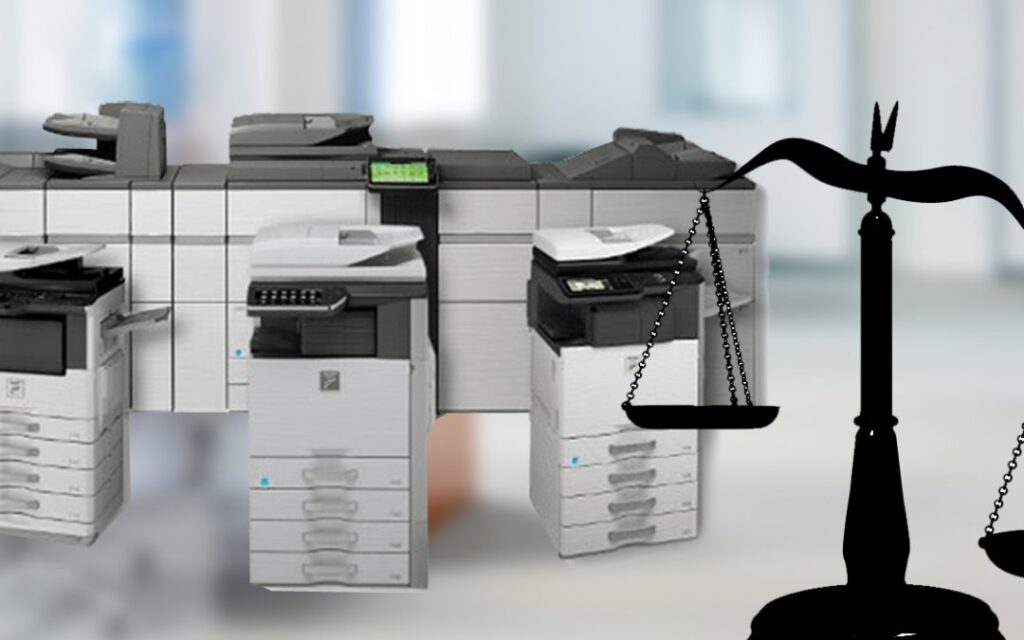
Investing in high-quality photocopiers and printers can be a significant financial burden, especially for small and medium-sized enterprises. Leasing allows companies to acquire high quality equipment without depleting their capital reserves. Instead of a large upfront payment, businesses can spread the cost over manageable monthly or quarterly lease payments.
- Financial Flexibility: Leasing allows businesses to conserve their capital, providing financial flexibility for other essential investments and unexpected expenses
- Steady Cash Flow: Monthly or quarterly lease payments offer predictability in budgeting, ensuring a steady cash flow for day-to-day operations and growth initiatives
- Tax Benefits: Leasing is often treated as an operating expense, potentially leading to tax deductions that reduce overall tax liabilities
- Technology Upgrades: Leasing enables regular equipment upgrades, keeping businesses competitive with the latest technology without a substantial upfront cost
- Risk Mitigation: Preserving capital through leasing minimises the risk associated with equipment depreciation, maintenance costs, and obsolescence
Budget Predictability
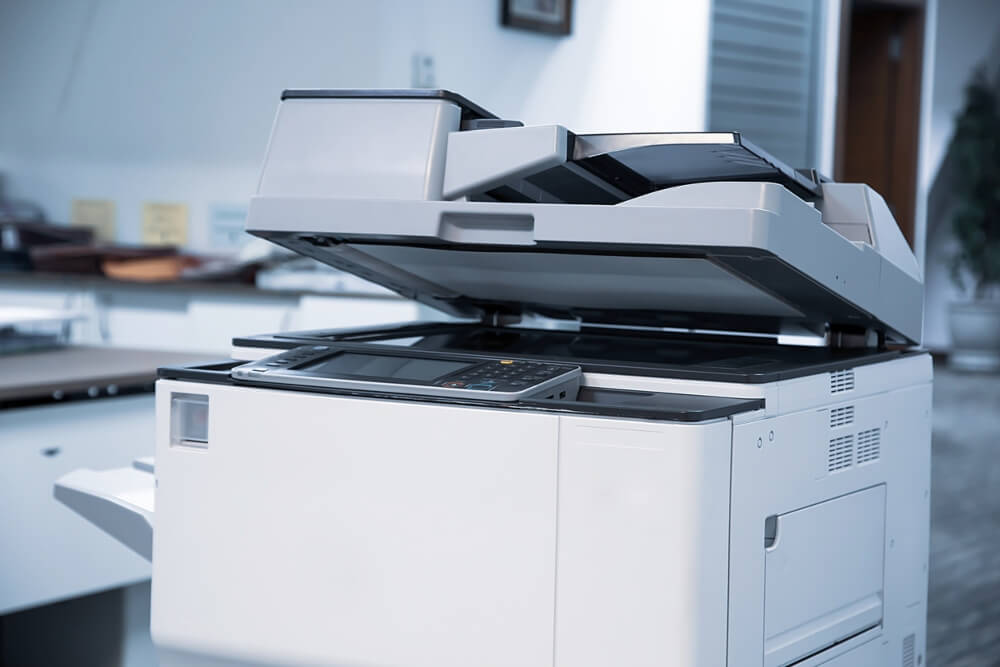
Leasing offers predictability in budgeting. With fixed monthly payments, businesses can plan their finances with confidence. This stability makes it easier to allocate resources to other critical areas of the organisation, such as marketing, expansion, or employee development.
- Fixed Payments: Leasing offers fixed, predictable monthly or quarterly payments, making it easier to budget and manage finances effectively
- Eliminates Unexpected Expenses: With no surprise repair or maintenance costs, businesses can confidently allocate resources to other priorities without budget disruptions
- Accurate Financial Planning: Predictable lease payments allow for accurate long-term financial planning, enabling businesses to set aside funds for growth and strategic initiatives
- Transparent Costs: The transparency of lease terms ensures that businesses know exactly what to expect in terms of expenditures, reducing financial uncertainty
- Simplified Accounting: Fixed lease payments simplify accounting processes, making it easier to track expenses and report financial performance accurately
Stay Current with Technology
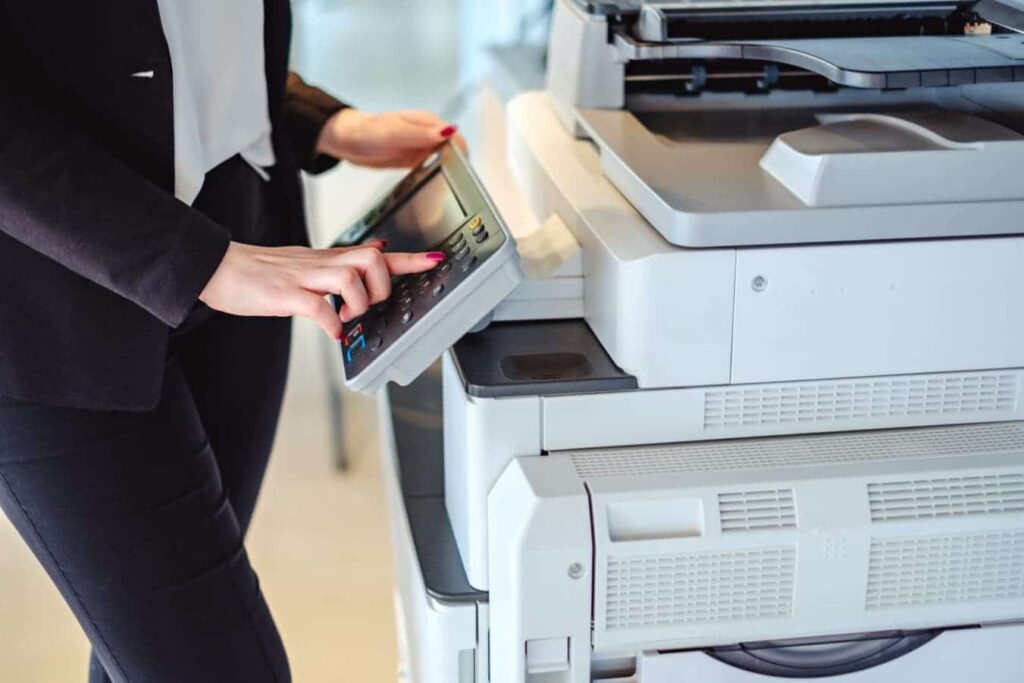
The technology landscape evolves rapidly, and keeping up with the latest advancements in photocopiers and printers can be costly. Leasing enables businesses to regularly upgrade their equipment to incorporate the latest features and improvements, ensuring they always have access to cutting-edge technology.
- Regular Upgrades: Leasing allows businesses to upgrade their photocopiers and printers at the end of the lease term, ensuring access to the latest technology without a significant upfront investment
- Stay Competitive: Staying current with technology helps businesses remain competitive in their industry by improving efficiency and productivity
- Cost-Efficient Technology Adoption: Leasing spreads the cost of technology adoption over time, making it more affordable and accessible for businesses of all sizes
- No Obsolescence Worries: Leasing eliminates concerns about equipment obsolescence, as businesses can easily transition to newer models at the end of each lease cycle
- Tech Support & Maintenance: Leasing agreements often include tech support and maintenance services, ensuring that equipment remains in optimal working condition throughout the lease period
Tax Benefits
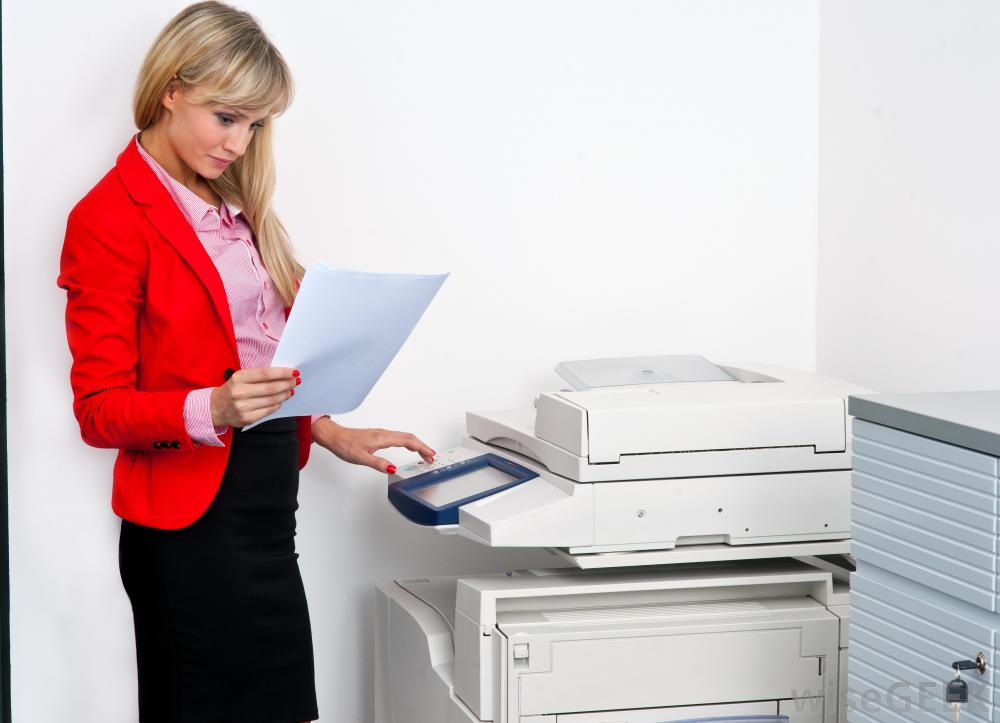
Leasing can provide significant tax advantages for businesses. In many jurisdictions, lease payments are considered operating expenses rather than capital expenditures. This distinction can lead to potential tax deductions, reducing the overall tax liability for the company. Consulting with a tax professional can help businesses maximise these benefits.
- Operating Expense Deductions: Lease payments are typically considered operating expenses, allowing businesses to deduct them from their taxable income
- Immediate Expense Recognition: Leasing can offer immediate expense recognition rather than capitalising the cost of the equipment, potentially reducing taxable profits
- Preservation of Capital: Leasing preserves capital for other investments, as there’s no significant upfront capital expenditure, which can be advantageous for tax planning
- Lower Overall Tax Liability: By deducting lease payments as operating expenses, businesses can lower their overall tax liability, resulting in potential cost savings
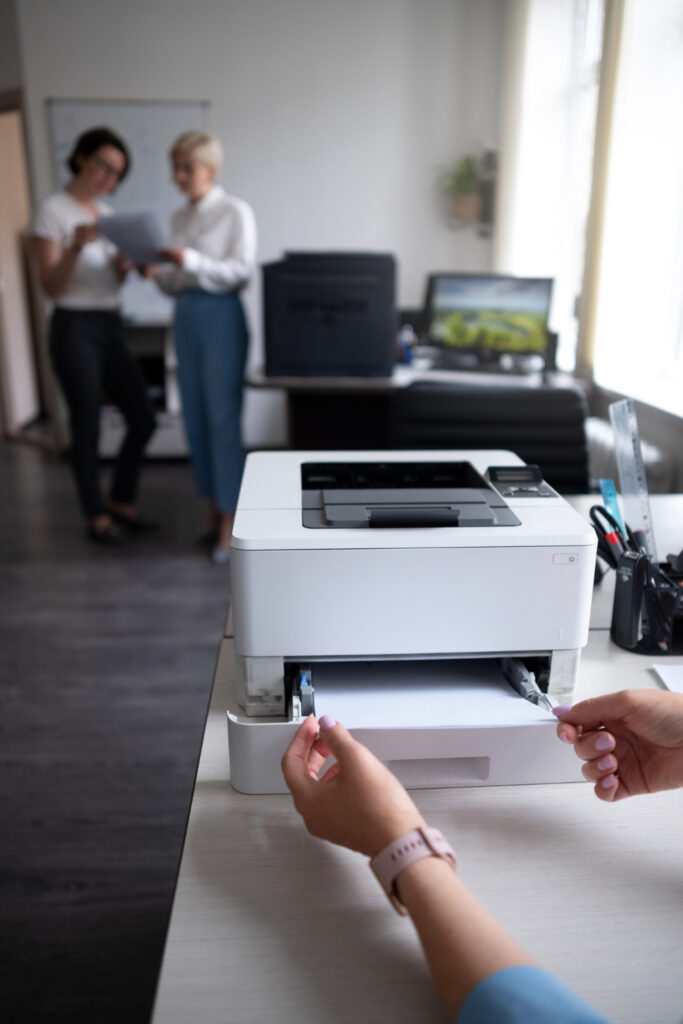
Maintenance and Support
Leasing agreements often include maintenance and support services, ensuring that your equipment remains in optimal working condition. This eliminates the need for separate service contracts and minimises downtime, allowing your staff to stay productive.
- Equipment Reliability: Maintenance agreements ensure regular servicing, reducing the risk of equipment breakdowns and minimising disruptions to your workflow
- Extended Lifespan: Regular maintenance extends the lifespan of photocopiers and printers, maximising the value of your lease and reducing the need for premature replacements
- Minimised Downtime: In the event of a technical issue, having a service agreement means faster response times and quicker issue resolution, minimising downtime and productivity loss
- Cost Predictability: Service agreements provide cost predictability by covering maintenance and repair expenses within the agreed-upon terms, eliminating unexpected repair costs
- Optimal Performance: Regular servicing helps maintain the optimal performance of your equipment, ensuring high-quality output and reducing the need for reprints or replacements
Flexible Terms
Leasing offers flexibility in terms of contract length, allowing businesses to tailor agreements to their specific needs. Whether you require a short-term lease for a specific project or a long-term agreement for ongoing operations, leasing can accommodate your requirements.
- Customised Agreements: Flexible terms allow businesses to customise lease agreements to align with their specific needs, budget, and operational requirements
- Adaptability: Businesses can choose lease terms that match their growth plans, whether it's a short-term lease for a project or a long-term agreement for ongoing operations
- Budget Control: Flexibility in lease terms provides better control over budgeting, ensuring that monthly payments are manageable and in line with financial goals
- Equipment Refresh: Businesses can schedule equipment upgrades or replacements according to their preferred timeline, staying current with technology without being locked into long-term commitments
- Exit Options: Flexible terms often include various end-of-term options, such as upgrading to newer equipment, extending the lease, or returning the equipment, allowing businesses to adapt to changing circumstances
Convenient End-of-Term Options
At the end of the lease term, businesses typically have several options. They can choose to upgrade to the latest equipment, extend the lease, or return the equipment without any further obligations. This flexibility ensures that businesses are not locked into outdated technology.
- Upgrade Flexibility: Convenient end-of-term options allow businesses to easily upgrade to the latest technology, ensuring they always have access to the most advanced equipment
- Smooth Transition: Businesses can transition to new equipment seamlessly, minimising disruptions and downtime as they return their current leased devices
- Customisation: End-of-term options can be tailored to a business's changing needs, whether it's scaling up or down, accommodating evolving requirements with ease
- Cost Control: Businesses have control over their budget as they can choose an end-of-term option that aligns with their financial goals and resources
- Equipment Disposal: Convenient options for returning leased equipment responsibly and hassle-free, avoiding the burden of managing obsolete devices
If you’re ready to enhance your office efficiency while preserving capital, consider leasing photocopiers or printers from Copybox. Contact us today to explore the leasing options that best suit your business needs and goals. Make the smart choice for your business—choose leasing.
Preserve Credit Lines
You can preserve your existing bank lines and optimise your use of commercial credit sources.
Budget Management
Leasing ensures a fixed manageable payment, irrespective of interest rate rises. The cost of rental is fixed enabling accurate budgeting.
Cash
Cash is king and it makes sense to use it for expansion or critical business needs. Leasing for office technology preserves precious cash.
100% Tax Allowable
Finance Lease rentals are 100% allowable against pre-tax profits. This means that the total cost of your investment – both capital and interest – can be offset against tax during the lease period, with the leasing payments deducted as a trading expense.
Technology Upgrades
Leasing allows you to take advantage of technology improvement at a time of your choosing and at a reasonable cost. By contrast a business that owns equipment can only upgrade by reinvesting and disposing of the existing asset.
No Large Upfront Costs
Most businesses earn revenue over time, but have to pay for equipment up-front, in one go. Why pay out in one lump sum when with leasing you can pay a small amount every month or quarter? Businesses prefer to pay as they use!
Leasing photocopiers and printers is a strategic choice for businesses looking to optimise their operations, save capital, and take advantage of potential tax benefits. By opting for leasing, companies can access cutting-edge technology, ensure budget predictability, and focus on their core business activities while leaving equipment maintenance and support to the experts.




